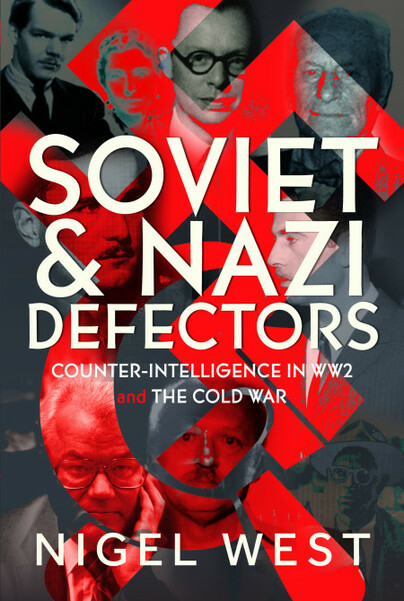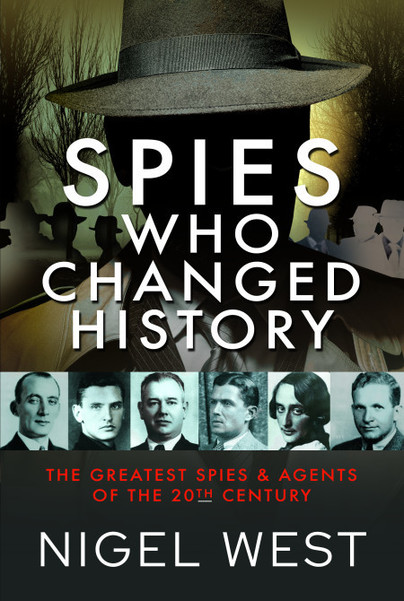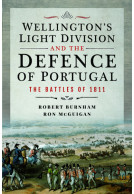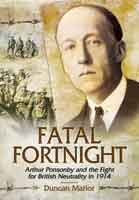Soviet and Nazi Defectors (Hardback)
Counter-Intelligence in WW2 and the Cold War

Pages: 296
Illustrations: 16 mono illustrations
ISBN: 9781036113889
Published: 5th November 2024
(click here for international delivery rates)
Order within the next 4 hours, 6 minutes to get your order processed the next working day!
Need a currency converter? Check XE.com for live rates
| Other formats available | Price |
|---|---|
| Soviet and Nazi Defectors ePub (1.1 MB) Add to Basket | £14.99 |
A well-informed defector is the most dangerous counter-intelligence commodity because it takes a spy to catch a spy. Very occasionally, an agent, especially a mole or an intelligence professional, will make a mistake and incriminate themselves, but usually it is a denunciation, a tip, or a vague clue from a defector that will provide the vital information required to expose the source of a leak.
Relying on recently-declassified intelligence files and interviews with defectors, their handlers, their families, and their victims, Nigel West has analysed nine examples of wartime and postwar defections to shed new light on the phenomenon.
Defectors are notoriously difficult to handle, and resettle, because of the range of genuine or invented motives that led them to take such drastic action. Some will provide a noble political motive, seeking to impress their host, while others may be driven by less worthy compulsions – perhaps greed, revenge, career disappointment, envy, anger, or nothing more complicated that a desire to start a life afresh with a different partner.
Defectors are the stock-in-trade for all counter-intelligence specialists who seek the background and context of corridor gossip and water-cooler chat cannot be substituted by any amount of technical surveillance, overhead reconnaissance or hard to-interpret intercepted communications. This is the essence of Human Intelligence, and goes to the heart of loyalty, trust, betrayal and deception – the very DNA of espionage.
These nine examples of switching sides all involve intelligence professionals who followed the example of Erich Vermehren. Because of his religious convictions, Vermehren felt compelled to desert the Abwehr in January 1944, even though this meant the arrest of his parents and siblings who were consigned to Sachsenhausen concentration camp. West traced Vermehren, then living under an alias in Switzerland, to hear his story first-hand. He then interviewed the British MI6 officer who had engineered the covert exfiltration from Istanbul of both the German and his wife.
Sometimes a defection may be the result of a period of cultivation, as happened with Vladimir Petrov, who was gently persuaded over many months by his Polish dentist to abandon his clandestine role as rezident in Canberra for a chicken farm. The intermediary, Dr Michael Bialoguski, admitted to the author that right up to the moment of his defection, he and his Australian Security Intelligence Organisation colleagues were not entirely sure of Petrov’s true status.
Once resettled, a defector’s life has daily challenges, as was explained by Yuri Rastvorov’s widow, herself a CIA counter-intelligence officer, who recalled the day she had to tell their two daughters that their father was not a Czech tennis coach, but an NKVD defector who had been based in Tokyo.
“… a valuable introduction to the role of defectors in counterintelligence operations and a fine contribution to intelligence literature.”
Studies in Intelligence
About Nigel West
NIGEL WEST is an intelligence expert and critically-acclaimed author. Such is his depth of knowledge in these fields that The Sunday Times noted that, ‘His information is often so precise that many people believe he is the unofficial historian of the secret services. His books are peppered with deliberate clues to potential front-page stories.’ In 1989 Nigel was voted ‘The Experts’ Expert’ by The Observer.
Spies Who Changed History The Greatest Spies and Agents of the 20th Century (Hardback)
Spies have made an extraordinary impact on the history of the 20th Century, but fourteen in particular can be said to have been demonstrably important. As one might expect, few are household names, and it is only with the benefit of recently declassified files that we can now fully appreciate the nature of their contribution. The criteria for selection have been the degree to which each can now be seen to have had a very definite influence on a specific course of events, either directly, by passing vital classified material, or indirectly, by organizing or managing a group of spies. Those selected…
By Nigel WestClick here to buy both titles for £50.00






















